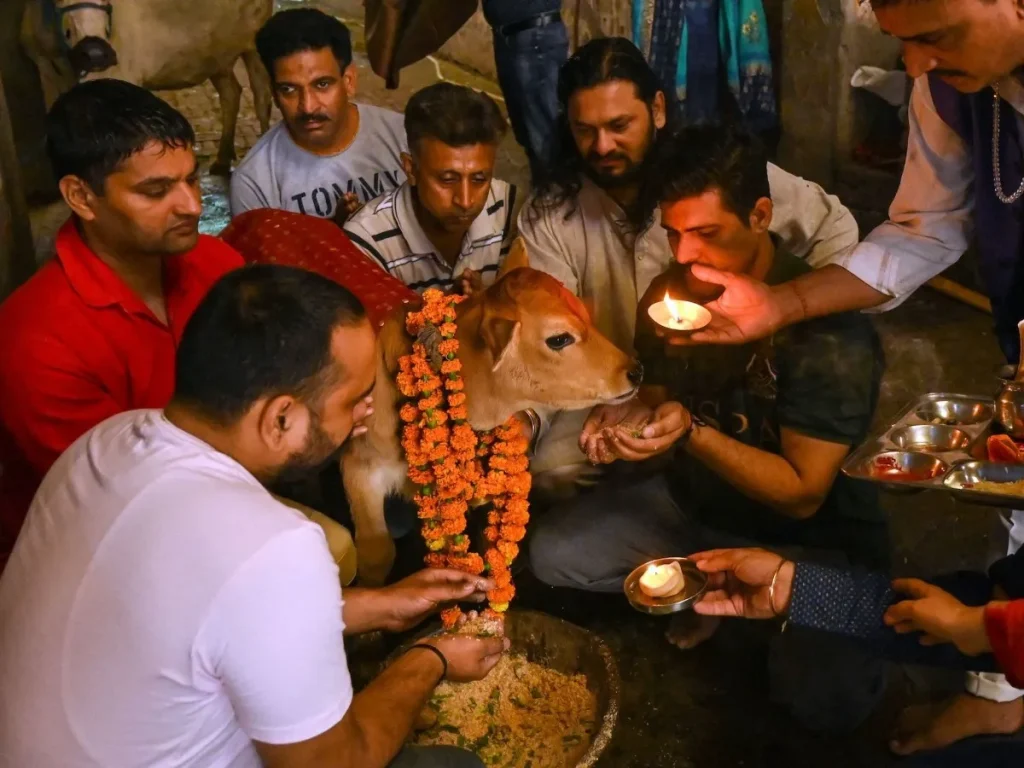The Maharashtra government has officially declared the cow as “Rajya Mata” (Mother of the State). This decision, announced on Monday, recognizes the deep-rooted cultural, spiritual, and economic importance of cows within Indian society. Cows have long been revered in Indian traditions, especially within Hinduism, where they are seen as a mother figure, symbolising nurture and purity. The Eknath Shinde-led government emphasised that cows are integral to Indian culture, holding historical, scientific, and even military significance throughout the ages.

Preservation of Indigenous Cow Breeds
The government’s order also expressed concerns over the declining population of indigenous cow breeds across India. It highlighted the significance of preserving these native breeds, which not only have cultural and religious importance but also play a vital role in agriculture. The order listed several native breeds that need protection and stressed the importance of sustainable breeding practices to ensure their survival. The government believes that protecting these breeds is key to maintaining the country’s agricultural heritage.
Economic Role in Agriculture
The contribution of indigenous cows extends far beyond their cultural and religious symbolism. The order pointed out that cow dung, for instance, is widely used in agriculture to improve soil fertility, directly enhancing the nutritional value of the crops grown and consumed. This highlights the cow’s importance in sustaining both agricultural practices and human health. The government noted how these animals have long provided essential resources for farming, from natural fertilisers to dairy products, further reinforcing their economic role.
Encouragement for Breeding Native Cows
Given these concerns, the Maharashtra government has urged cattle rearers to prioritise the breeding and raising of indigenous cow species. This call to action aims to promote the sustainability of native cows while ensuring their contribution to the economy and environment is preserved. The government hopes that by encouraging local cattle farming, it will not only preserve the breeds but also boost rural livelihoods.

Cultural Reverence for Cows
In its justification, the government referenced the long-standing cultural and religious respect for cows, particularly within Hinduism, where the cow is considered sacred and worshipped as a mother figure. This reverence for cows is woven into the social and religious fabric of the country, making the declaration of ‘Rajya Mata’ a significant step toward acknowledging their importance in society.
Sacred Uses of Cow Products
The order also highlighted the sacred uses of cow products like milk, urine, and dung in religious practices. Cow milk, in particular, is noted for its nutritional benefits, while cow urine is believed to have medicinal properties that can cure various diseases. These beliefs, coupled with the practical uses of cows in agriculture, underscore their multifaceted significance in both spiritual and everyday life.
